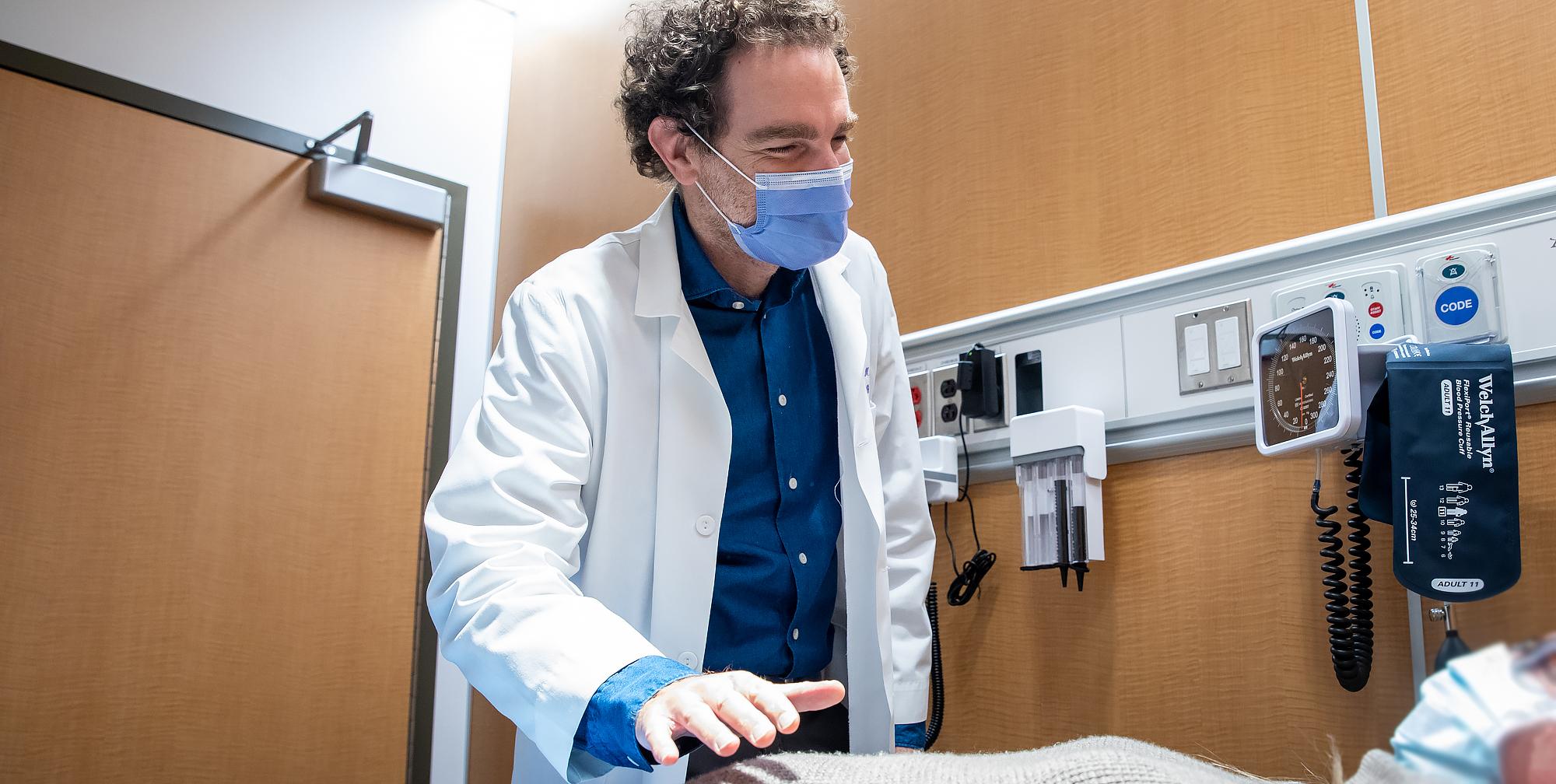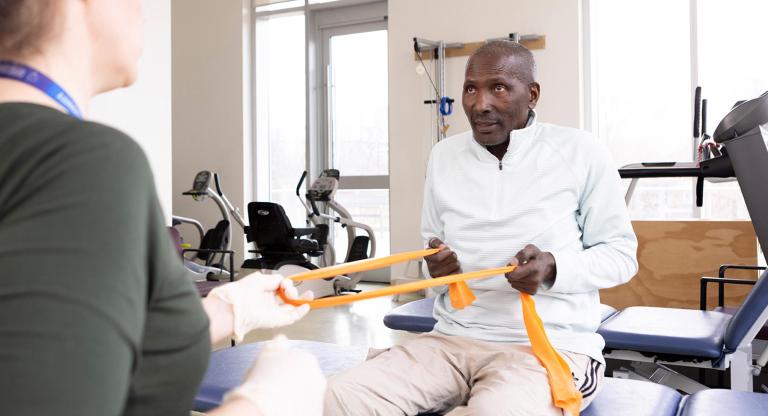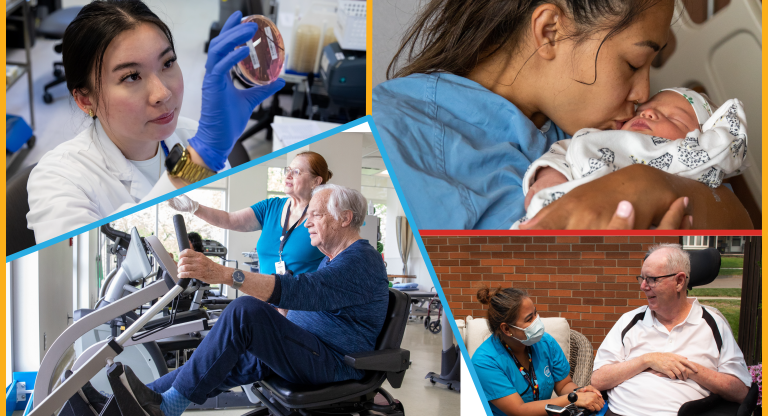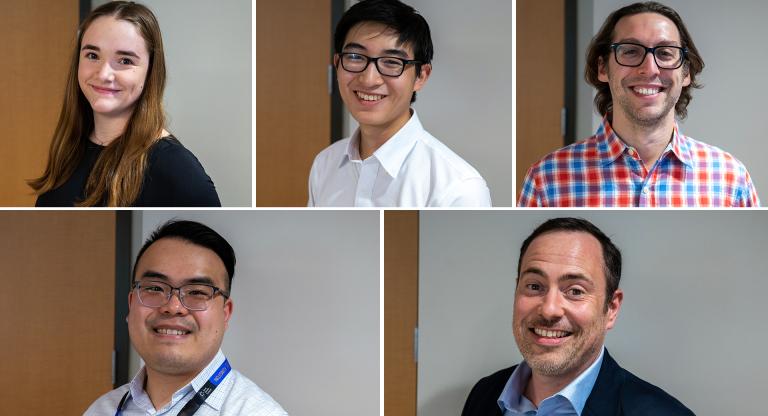"You're Not Alone": Q and A with Dr. Adam Weizman, Director of the Inflammatory Bowel Disease Program at Sinai Health

Inflammatory bowel disease (IBD) is a growing health concern in Canada. While IBD is diagnosed everywhere, Canada has some of highest rates of disease occurrence in the world.
According to the 2023 IBD Report put out by Crohn’s and Colitis Canada, the number of people living with IBD has increased from 270,000 in 2018 to 322,600 in 2023. The report projects that 470,000 Canadians will be living with IBD by 2035.
IBD is one of our flagship areas of care at Sinai Health, and we are committed to providing patients with early access to leading-edge treatment.
In honour of World IBD Day on May 19, we sat down with Dr. Adam Weizman, the Medical Director of the Centre for Inflammatory Bowel Disease at Sinai Health. We asked Dr. Weizman how Sinai Health is providing pioneering IBD care and what IBD patients themselves need to know.
What makes Sinai Health unique when it comes to IBD care?
At Sinai Health, our IBD centre has three pillars: – clinical care, research programs and education.
Clinical care is provided by a cohesive multidisciplinary group of different specialists. Our gastroenterologists collaborate closely with colorectal surgeons, radiologists and pathologists. We also have nurse practitioners, nurses, pharmacists, stoma care nurses and dieticians on our team. IBD can be quite complex so patients benefit from a true multidisciplinary team.
Mount Sinai is building a new ambulatory care area that will make the patient experience even more streamlined—more like a one-stop shop for IBD where patients can see multiple providers in one visit.
We are also unique because of our active research program. Our translational research is internationally renowned, and we do a lot of clinical research with a special interest in pregnancy and IBD. This focus on research allows patients the opportunity to participate, perhaps gaining access to medication that is being studied, and helps us answer questions about IBD.
Lastly, we have the largest IBD fellowship program in the world. At any given time we have up to seven fellows who come from all over the world to learn about IBD at Sinai Health.
What should patients know about managing IBD?
First, early diagnosis and care from a health-care provider who understands the condition is important to help manage IBD. People experiencing abdominal pain, bloody stools and recurrent fevers, and those with a family history of IBD, should be evaluated with imaging tests or a colonoscopy.
The mainstay of IBD treatment is medication and surgical management. Lifestyle modifications such as dietary changes can help some patients feel better. We are doing research to see the connection between diet and IBD.
IBD is a chronic condition, so it important for patients to stay in touch with their IBD treatment team even if they are feeling well because things can change.
People tend to think IBD surgery is a last resort, but that depends on many factors. Sometimes surgery can solve a problem early on and keep people well with or without medication for many years.
Many of IBD’s manifestations cannot be treated medically, so surgery is a very important part of the management. Up to 50 per cent of patients with Crohn’s disease will require surgery within 10 years of their diagnosis.
What message do you have for someone who has recently been diagnosed with IBD?
You’re not alone. There is a lot of patient support and advocacy programs that can help you connect with other people living with IBD.
We have more treatment options today than we did even 10 or 20 years ago. Stay connected with a gastroenterologist because we continue to answer questions about IBD every year.
IBD is a chronic disease, but we strive to manage it, and many patients do very well.
Why did you choose to specialize in IBD?
I was interested in IBD early on as a medical student. I knew people with IBD, so that personal connection was a motivating factor. Because IBD is often diagnosed earlier in life, I liked how you get to get to know patients and follow them over years and years. You really get to know them and their families.
From a research point of view, I was drawn to all of the unanswered questions. There are so many things we still have yet to learn about IBD.
And finally, many of my mentors who I looked up to during my training were interested in IBD. That definitely shaped my interests as well.












